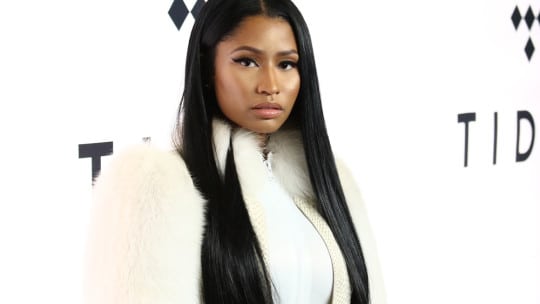
Society's dependence on real-time messaging through social media platforms like Facebook and Twitter has drastically increased over the last decade. Though these platforms were introduced with the promise of bringing disparate groups and communities closer together, it often seems as if they have the opposite effect—siloing users into individual content feeds that have been algorithmically customized to reaffirm their tastes, preferences and beliefs.
We’ve seen this problem reach a boiling point on Facebook and Twitter as of late, as the two parties of our country’s political system often maximize the reach of their targeted messaging by weaponizing that messaging against the opposing party. But a similar trend increasingly occurs in pop culture, too, when someone cannot openly share a critique of a blockbuster artist like Drake, Beyoncé or Kanye without facing a bricolage of abuse and hostility from that artist's fan base.
The latest such incident occurred when Wanna Thompson, a music critic and Nicki Minaj fan, tweeted out to her approximately 14,000 followers her opinion on the maturity of Minaj’s work. “You know how dope it would be if Nicki put out mature content?” wrote Thompson. “No silly s**t. Just reflecting on past relationships, being a boss, hardships, etc. She’s touching 40 soon, a new direction is needed.”
The backlash was immediate and toxic. Nicki Minaj "stans," a word used to describe rabid superfans that's lifted from the Eminem hit “Stan,” attacked Thompson without rest. They dug into her Twitter history and sent Thompson photos of her young daughter with threats attached; they berated her ability to write and her physical appearance; they also sent her death threats.
Things only got worse when Minaj herself slid into Thompson’s DMs and questioned her intentions behind the criticism with a series of insults about her appearance and self-aggrandizing statements too vulgar to be written here.
“Her fans mimic her behavior,” Thompson told the New York Times in a story that points out that petty exchanges have reached a tipping point on social media, Twitter specifically.
This poses a challenge, and potential opportunity, for communicators who want to compose the least incendiary messaging possible and still optimize that content’s reach.
Don't leave any factual holes in your social copy. One of the most consistent criticisms against Thompson's initial tweet was that other Minaj fans felt as though Thompson's claims were inaccurate, and many told her to "do your research" over the fact that she had tackled several mature themes such as abortion, mental health and substance abuse on albums past. By focusing her criticism on something that could easily be challenged or refuted, Thompson unwittingly made her core argument vulnerable and open to debate among people who had clearly already made up their minds.
This same lesson applies more generally to the importance of fact-checking. If you want that social copy to be ironclad, then make sure none of it is questionable or outright untrue.
Stay away from comments about age, appearance or personal identifiers. This point should go without saying, but as it turns out it can't be said enough. Your messaging shouldn't contain any identifiers or qualifiers about people that you wouldn't comfortably say to the face of a co-worker in a healthy workplace. Got it? Good.
Don't crowdsource opinions or ideas through your brand. It's one thing to ask a general question to your audiences when the answers directly feed into the product or service you're offering—"what's your favorite ice cream," for example. But the minute you offer a personal opinion through your brand or organization's social channels, you're tethering that opinion to the organization at large and undermining your communications team's plan for an integrated, calculated messaging strategy.
Take the high road when faced with backlash. Thompson shared the extent to which Minaj's fans harassed her, and it paid off—Wendy Williams mentioned her, and that NYT piece wasn't too shabby, either—but most of the time, sharing or responding to backlash is only going to exacerbate the crisis. Your brand should have a clear strategy for when to respond and when to stay silent, especially if the backlash is on a scale so small that it will eventually fizzle out on its own. In instances when it seems the backlash isn't going away, taking the high road means providing context and staying measured. The person who can communicate most calmly and reasonably always appears in control, even when that isn't actually the case.
Follow Justin: @Joffaloff
